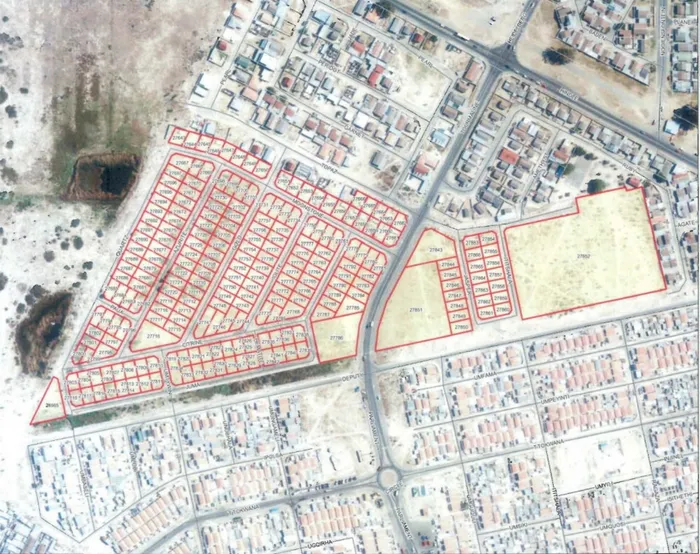Why buying fully serviced vacant land is a smart financial move for homebuyers

Serviced vacant land is a key investment, unlike other assets that may depreciate over time, raw land is a finite resource that tends to appreciate, particularly in sought-after locations.
Image: Supplied
Buying fully serviced vacant land is not only a financially sound decision but also a flexible one.
This is according to Sam Wenger, development director of Serenity Hills, an eco-focused lifestyle estate on the KZN South Coast.
“It allows buyers to enter the property market at a lower cost while retaining the freedom to build a home that perfectly suits their needs and lifestyle,” Wanger said.
He said that one of the most significant advantages of buying raw land is the potential tax savings.
“Unlike purchasing a pre-built property, acquiring land often incurs lower VAT or transfer duties, or a complete absence of transfer duties, which reduces the overall cost of ownership. This makes it an attractive option for buyers looking to maximise their investment while minimising upfront expenses.”
By purchasing land and building later, Wenger says homeowners can also spread out their financial commitments, making it easier to manage cash flow and plan for the future.
Earlier this year, the Housing Development Agency (HDA) told this publication that it achieved significant milestones, such as acquiring and releasing 12,151.5472 hectares of land for human settlements and rezoning 6,597.86 hectares for development purposes.
It said these accomplishments position them to expedite housing delivery and support sustainable, integrated communities.
On the other hand, the Social Housing Regulatory Authority (SHRA) recently told this publication that ensuring that land suitable for social housing is made available for development was a challenge.
In terms of value growth, Wenger says serviced vacant land is a key investment. He said that, unlike other assets that may depreciate over time, raw land is a finite resource that tends to appreciate, particularly in sought-after locations.
“Coastal areas, such as the KZN South Coast, are especially prized for their natural beauty, accessibility, and lifestyle appeal. By investing in land now, buyers can secure a tangible asset that not only retains its value but grows in worth over time.
"Buyers also have the option of holding onto the land and selling it at a higher price, generating a nice profit with little effort.”
The development director said another massive appeal for buying raw land is the flexibility it offers homeowners.
He said, unlike purchasing a pre-built home, land allows investors to choose what they want-within the parameters of the development.
“This optionality is particularly valuable in today’s fast-paced world, where lifestyle needs and design trends can change rapidly and are preference-based. Raw land offers the freedom to create a home that aligns with your vision and timeline,” he notes.
Looking at the broader South African landscape, Wenger says there are even more reasons why investing in raw land is a savvy move right now.
He said from the stability offered by the Government of National Unity(GNU) to the South African consumer confidence in the property market sitting at a 10-year high, the outlook for the South African property market is good.
“This has been further strengthened by the announcement made by Finance Minister Enoch Gondongwana that an additional R46.7 billion has been allocated to key infrastructure projects.
"Alongside the push for private-public partnerships to drive infrastructure development, South Africa is on the right path, with road upgrades and enhanced connectivity ensuring this region is poised for growth,” Wenger said.
The Minister in the Department of Human Settlements (DHS), Thembi Simelane, addressed the South African Local Government Association Western Cape PEC Lekgotla gathering earlier this week.
Simelane stated that 70% of the R549.37 million Informal Settlements Upgrading Partnership Grant (ISUPG) budget must be allocated to capital projects, with the primary goal of creating serviced sites.
She said this means that over five years, the province must allocate 70% of their annual ISUPG allocations to projects with the 9 761 targeted serviced sites.
“It is also important to note that over 60% of the required number of serviced sites for the sector is allocated to metropolitan municipalities.
"The City of Cape Town Metropolitan Municipality MTDP budget allocation for the Human Settlements Grants for 2025/26, 2026/27 and 2027/28 as per the 2025/26 DOR Bill as budget allocation for the Human Settlements Grants over the three-year period, as gazetted on 07 February 2025, is R5.36 billion, made up of R3.41 billion for USDG and R1.94 billion for ISUPG,” Simelane said.
The minister said the Metro has a target to provide about 30 270 serviced sites in the next five years.
“The city must also allocate 70% of its annual ISUPG allocations to projects that will yield serviced sites, towards ensuring the upgrading of informal settlements. The same approach adopted for HSDG in terms of the grant utilisation has been adopted.
"This means that about 70% of the ISUPG grant must be utilised for capital projects and 30% is for other programmes such as planning, provision of basic services, formalisation, etc”
Independent Media Property
